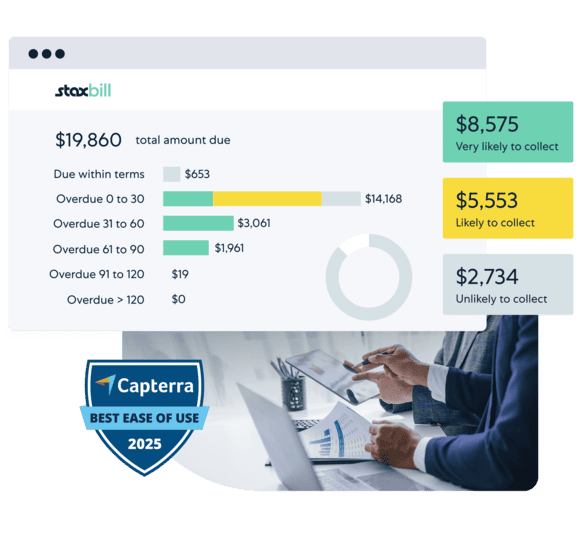80% increase in productivity
Increase efficiency with up to 80% less time spent billing every month
700% reduction in late/failed payments
Cut down late or failed payments by up to 700% with credit card retry schedules
4% boost in revenue retrieval
Retrieve 2%-4% of your monthly earnings with automated collection tools
Subscription management
Effortlessly manage your subscriptions with Stax Bill. You can automate and enhance your subscription processes seamlessly from dynamic pricing, custom registrations, structured account hierarchies, custom tracking, and more.
Recurring billing
Maximize growth with Stax Bill’s recurring billing. Enjoy automated lifecycle communications, custom invoices, and smart automated pricing with accuracy.
Payment collection
Enhance your payment collection with Stax Bill. Boost revenue with automated dunning, insightful account receivables aging reports, and effective payment retries to reduce churn.
Revenue recognition
Stax Bill supports many revenue recognition options, including an advanced milestone module for ASC 606 compliance. We have over 50 dynamic reports to track cash flow and identify revenue sources by product, plan, or customer, for any period, providing clarity on revenue effortlessly.
Trusted by users
Don’t just take our word for it – see what our satisfied customers have to say about their experience with Stax Bill
